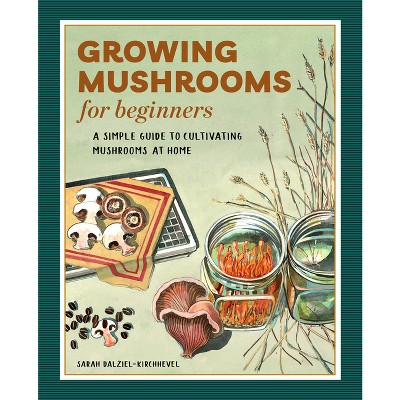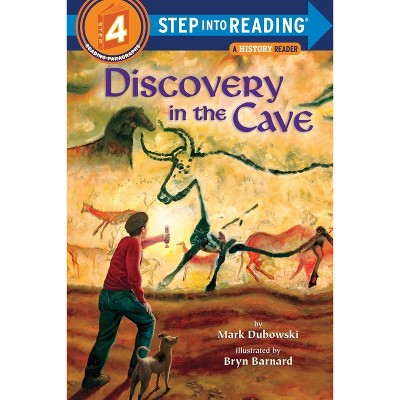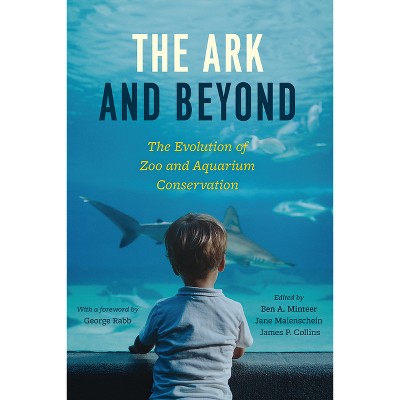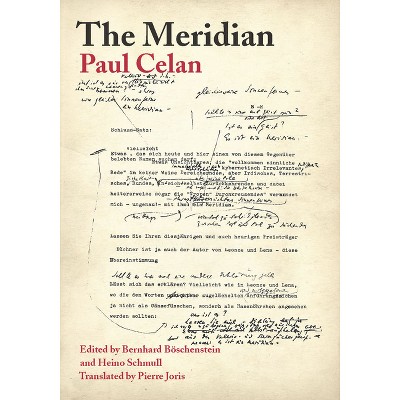Sponsored

Crossing the Boundaries of Life - (Convening Science: Discovery at the Marine Biological Labora) by Karl S Matlin (Paperback)
$35.00
In Stock
Eligible for registries and wish lists
Sponsored
About this item
Highlights
- A close look at Günter Blobel's transformative contributions to molecular cell biology.
- About the Author: Karl S. Matlin is professor emeritus of biological sciences and conceptual and historical studies of science at the University of Chicago.
- 368 Pages
- Science, History
- Series Name: Convening Science: Discovery at the Marine Biological Labora
Description
About the Book
"The difficulty of reconciling chemical mechanisms with the functions of whole living systems has plagued biologists since the development of cell theory in the nineteenth century. As Karl Matlin argues in Crossing the Boundaries of Life, it is no coincidence that this longstanding knot of scientific inquiry was loosened most meaningfully by the work of a cytologist, the Nobel laureate Gèunter Blobel. In 1975, using an experimental setup that did not contain any cells at all, Blobel was able to synthesize proteins to theorize how proteins in the cell communicate spatially, an idea he called signal hypothesis. Over the next 20 years, Blobel and other scientists were able to dissect this process into its precise molecular details. For elaborating his signal concept into a process he termed membrane topogenesis-the idea that each protein in the cell is synthesized with an 'address' that directs the protein to its correct destination within the cell-Blobel was awarded the Nobel Prize in Physiology or Medicine in 1999. Matlin argues that Blobel's investigative strategy and its subsequent application addressed the fundamental unresolved dilemma that had bedeviled biology from its very beginning, allowing biology to overcome the barrier that had long blocked progress toward mechanistic explanations of life. Crossing the Boundaries of Life thus uses Blobel's research and life story to shed light on the importance of cell biology for twentieth-century science, illustrating how it propelled the development of adjacent disciplines like biochemistry and molecular biology"--Book Synopsis
A close look at Günter Blobel's transformative contributions to molecular cell biology. The difficulty of reconciling chemical mechanisms with the functions of whole living systems has plagued biologists since the development of cell theory in the nineteenth century. As Karl S. Matlin argues in Crossing the Boundaries of Life, it is no coincidence that this longstanding knot of scientific inquiry was loosened most meaningfully by the work of a cell biologist, the Nobel laureate Günter Blobel. In 1975, using an experimental setup that did not contain any cells at all, Blobel was able to target newly made proteins to cell membrane vesicles, enabling him to theorize how proteins in the cell distribute spatially, an idea he called the signal hypothesis. Over the next twenty years, Blobel and other scientists were able to dissect this mechanism into its precise molecular details. For elaborating his signal concept into a process he termed membrane topogenesis--the idea that each protein in the cell is synthesized with an "address" that directs the protein to its correct destination within the cell--Blobel was awarded the Nobel Prize in Physiology or Medicine in 1999. Matlin argues that Blobel's investigative strategy and its subsequent application addressed a fundamental unresolved dilemma that had bedeviled biology from its very beginning--the relationship between structure and function--allowing biology to achieve mechanistic molecular explanations of biological phenomena. Crossing the Boundaries of Life thus uses Blobel's research and life story to shed light on the importance of cell biology for twentieth-century science, illustrating how it propelled the development of adjacent disciplines like biochemistry and molecular biology.Review Quotes
"Over the course of the century, many biological sciences become extremely complex, and following these fields often results in highly technical and dense narratives. Crossing the Boundaries of Life does not shy away from this reality, though Matlin, who spent most of his career as a practicing cell biologist, and in fact did his postdoctoral work across the hall from Blobel's laboratory, does a laudable job in unpacking and explicating where the crucial moments of innovation occur. Matlin's narrative also adeptly ties together many strands of the
twentieth-century biosciences, most of which have only previously been outlined in disciplinary histories. Though molecular cell biology may sound like it only concerns a small slice of biological problems, Crossing the Boundaries of Life features an array of work from protein chemists, embryologists, molecular biologists, physiologists and, of course, cytologists. Matlin underpins his philosophical analysis using Hans-Jörg Rheinberger's concept of epistemic things and readers who found Rheinberger's work informative will find Crossing the Boundaries of Life to be an exceptional example of how it can be used to understand the work of modern biological sciences."-- "British Journal for the History of Science"
"Those interested in strategies by which biologists relate cellular phenomena to spatially organized subcellular molecular processes will read Crossing the Boundaries of Life with great benefit."-- "Isis"
"This complexity of the cell, and equally--if not more so--the complexity of the history of the scientific study of the cell, is something that struck me most forcibly as I wended my way through the pages of Karl Matlin's Crossing the Boundaries of Life. . . . there is a rich vein of information as well as ideas for entire historical projects to be mined in this book."-- "Metascience"
"Those who are willing to be guided through the rough and tumble of a long experimental research trajectory and its details will be richly rewarded in the end. To the reviewer's knowledge, this book is the first to provide a comprehensive overview of what it means to do cell biology at the molecular level, and to trace historically how it came to be done."--Hans-Jörg Rheinberger "Frankfurter Allgemeine Zeitung (translated from German)"
"Based solely on its originality, wealth of detail, and subject matter, Crossing the Boundaries of Life deserves to be on the must-read list of every historian of the twentieth-century life sciences." -- "Journal of the History of Biology"
"Based on personal contact and archival research, including an epilogue addressing contending epistemic debates (cellular context vs. molecular processes), this book provides an excellent account of how paradigm shifts actually occur in science. The text is readable for a general audience and provides a host of primary resources. . . . Highly recommended."-- "Choice"
"Matlin charts new terrain in the history of the life sciences. His book is original, relevant, and provides a wealth of new stories and conceptual problems for the history and philosophy of cell and molecular biology. This exciting piece of scholarship covers a crucial episode of these sciences which merits scholarly attention. Matlin moves the field a step forward."--Mathias Grote, author of Membranes to Molecular Machines
About the Author
Karl S. Matlin is professor emeritus of biological sciences and conceptual and historical studies of science at the University of Chicago. He is the coeditor of several books, most recently Why Study Biology by the Sea?, also published by the University of Chicago Press.Dimensions (Overall): 9.0 Inches (H) x 6.0 Inches (W) x .82 Inches (D)
Weight: 1.19 Pounds
Suggested Age: 22 Years and Up
Number of Pages: 368
Genre: Science
Sub-Genre: History
Series Title: Convening Science: Discovery at the Marine Biological Labora
Publisher: University of Chicago Press
Format: Paperback
Author: Karl S Matlin
Language: English
Street Date: May 10, 2022
TCIN: 1006098500
UPC: 9780226819341
Item Number (DPCI): 247-44-5635
Origin: Made in the USA or Imported
If the item details aren’t accurate or complete, we want to know about it.
Shipping details
Estimated ship dimensions: 0.82 inches length x 6 inches width x 9 inches height
Estimated ship weight: 1.19 pounds
We regret that this item cannot be shipped to PO Boxes.
This item cannot be shipped to the following locations: American Samoa (see also separate entry under AS), Guam (see also separate entry under GU), Northern Mariana Islands, Puerto Rico (see also separate entry under PR), United States Minor Outlying Islands, Virgin Islands, U.S., APO/FPO
Return details
This item can be returned to any Target store or Target.com.
This item must be returned within 90 days of the date it was purchased in store, shipped, delivered by a Shipt shopper, or made ready for pickup.
See the return policy for complete information.
Frequently bought together

$8.49
MSRP $14.99
Buy 1, get 1 50% off select books
2 out of 5 stars with 1 ratings
Trending Non-Fiction

$15.68
Buy 1, get 1 50% off select books
4.8 out of 5 stars with 208 ratings

Highly rated
$19.31
was $20.98 New lower price
Buy 1, get 1 50% off select books
3.9 out of 5 stars with 71 ratings

$18.28
was $19.58 New lower price
Buy 1, get 1 50% off select books
4.7 out of 5 stars with 17 ratings

$4.59
MSRP $7.99
Buy 1, get 1 50% off select books
4.8 out of 5 stars with 125 ratings

$6.20
MSRP $10.95
Buy 1, get 1 50% off select books
4.8 out of 5 stars with 33 ratings

$7.09
MSRP $9.99
Buy 1, get 1 50% off select books
4.9 out of 5 stars with 46 ratings
Discover more options

$5.57
MSRP $5.99
Buy 1, get 1 50% off select books
1 out of 5 stars with 1 ratings









